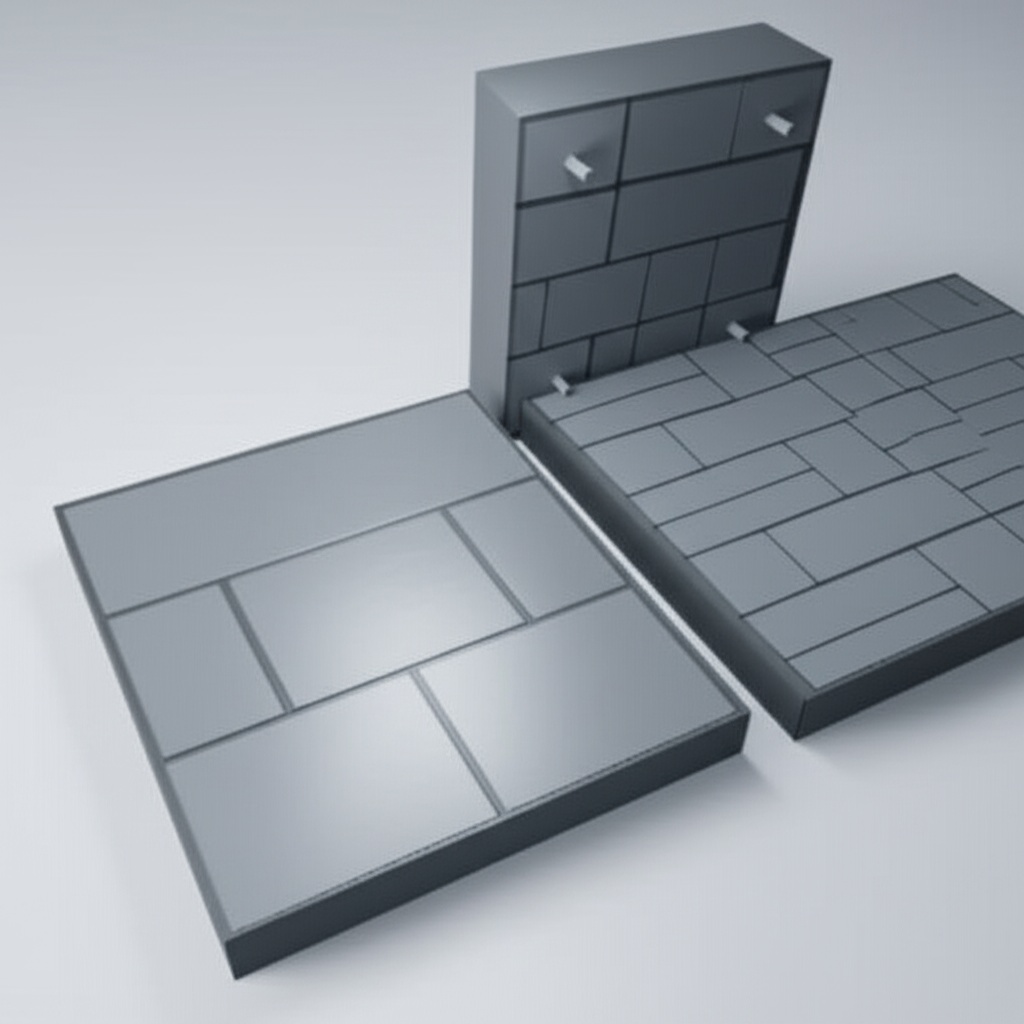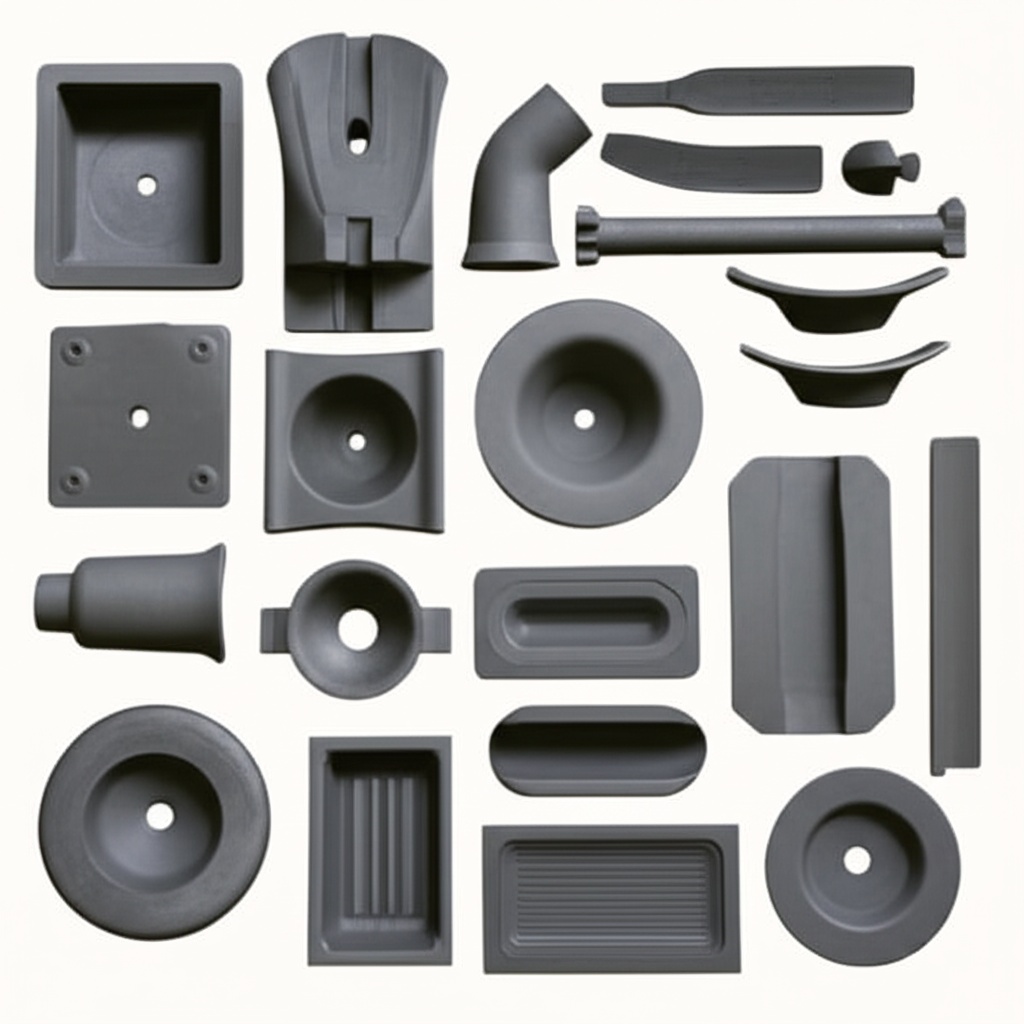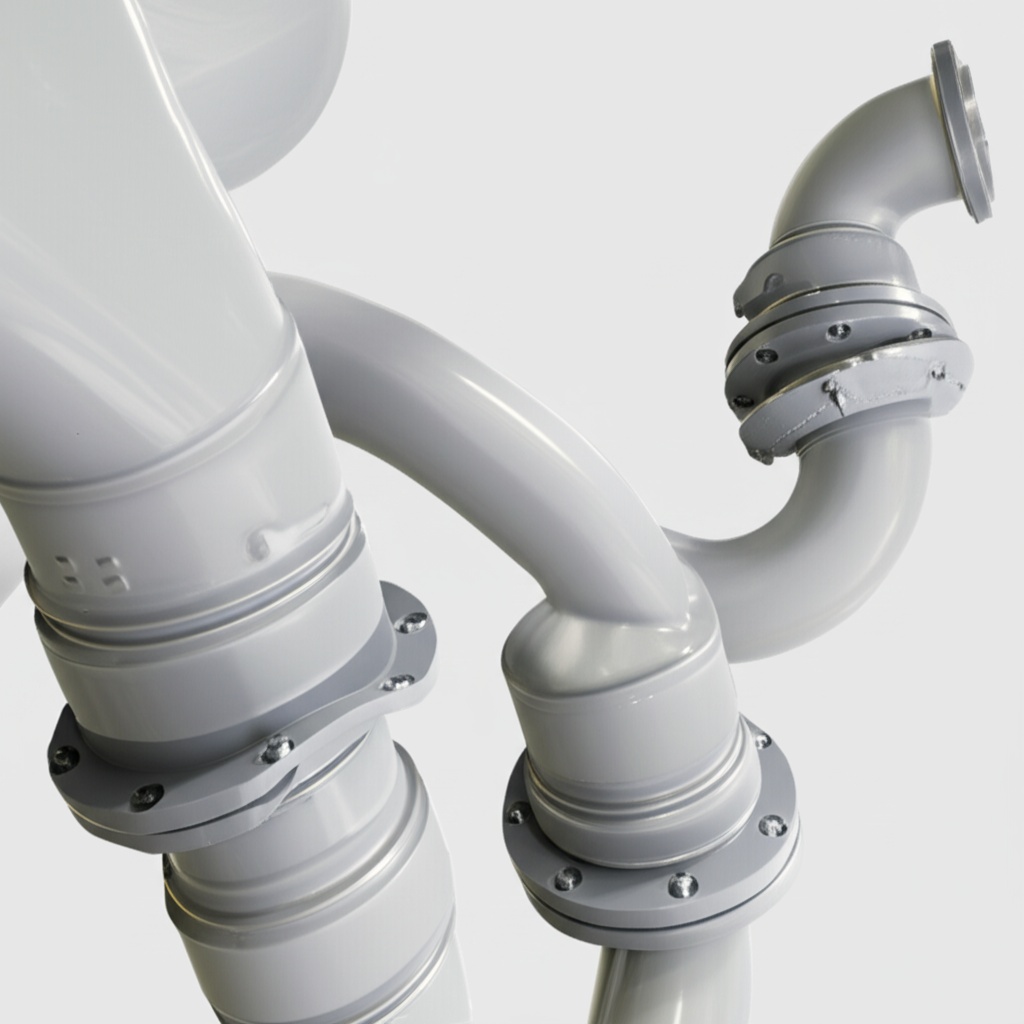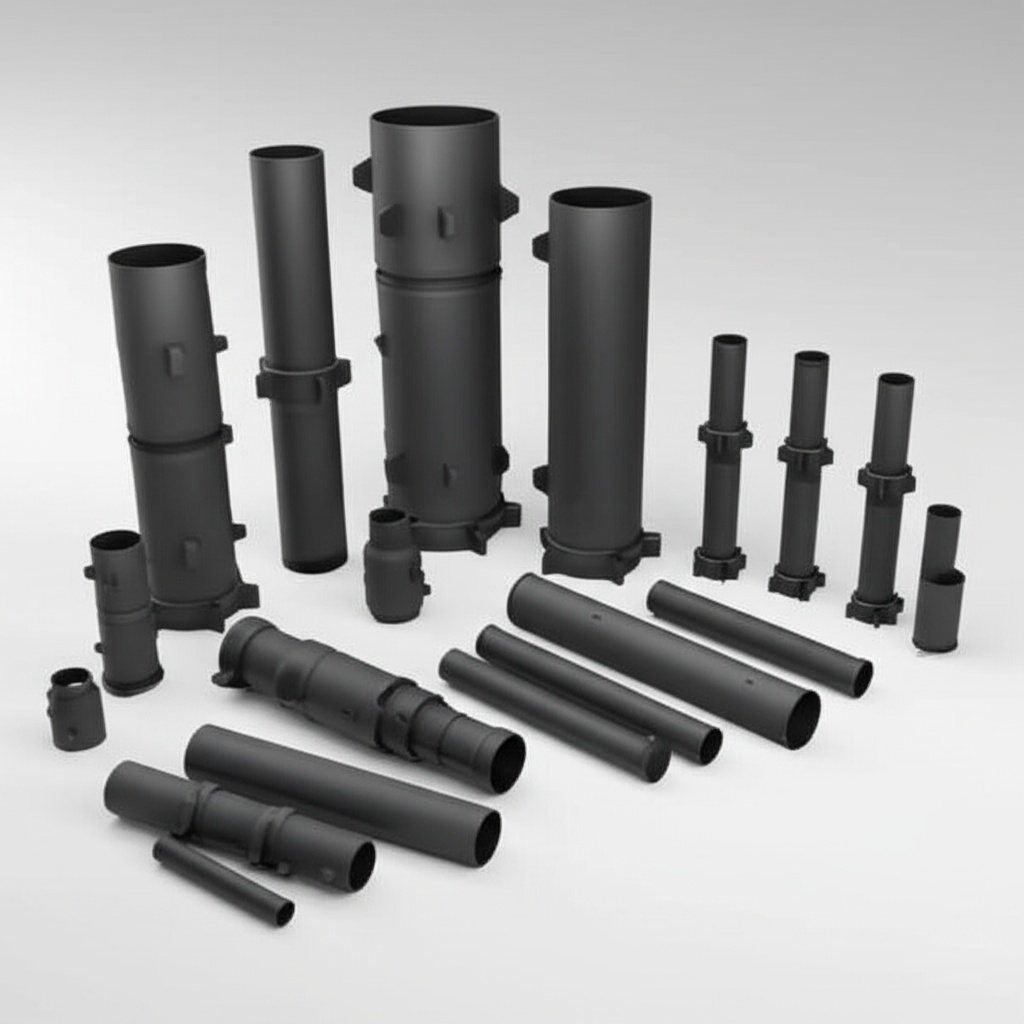Brazil for Custom Engineered SiC Components

Share
Brazil for Custom Engineered SiC Components
In the demanding world of advanced industrial applications, the quest for materials that can withstand extreme conditions while offering superior performance is never-ending. Custom silicon carbide (SiC) stands out as a material marvel, providing unparalleled properties crucial for breakthroughs in various sectors. For industries in Brazil seeking cutting-edge solutions, understanding the profound impact and availability of custom-engineered SiC components is paramount. This blog post delves into the world of bespoke SiC, its applications, design considerations, and how to secure the best-in-class solutions for your critical projects.
Why Custom Silicon Carbide Excels
Custom silicon carbide products are not just materials; they are engineered solutions designed to meet the precise requirements of high-performance industrial applications. SiC’s unique combination of properties makes it indispensable where conventional materials fail. These properties include:
- Exceptional Hardness and Wear Resistance: Ideal for abrasive environments, extending the lifespan of components.
- Superior Thermal Resistance: Maintains structural integrity and performance at extremely high temperatures, far beyond the capabilities of many metals.
- Excellent Chemical Inertness: Resists corrosion from harsh chemicals, making it suitable for aggressive processing environments.
- High Thermal Conductivity: Efficiently dissipates heat, critical for thermal management in power electronics and high-temperature systems.
- Low Thermal Expansion: Minimizes dimensional changes under temperature fluctuations, ensuring precision and stability.
- Semiconductor Properties: Crucial for next-generation power electronics, offering higher efficiency and power density.
For procurement managers, engineers, and technical buyers in Brazil, opting for custom-engineered SiC components translates directly into enhanced operational efficiency, reduced maintenance costs, and improved product lifespan in critical systems.
Main Applications of Engineered SiC
The versatility of custom silicon carbide makes it a material of choice across a spectrum of high-stakes industries:
| Industry Sector | Key SiC Applications |
|---|---|
| Semiconductor Manufacturing | Wafer carriers, process chamber components, susceptors, electrostatic chucks, and high-temperature furnace parts for advanced chip fabrication. |
| Automotive | Power modules for electric vehicles (EVs), inverters, on-board chargers, and brake discs, leading to higher efficiency and extended range. |
| Aerospace | Nozzles, turbine components, heat exchangers, and structural elements requiring lightweight, high-temperature, and wear-resistant properties. |
| Power Electronics | Diodes, MOSFETs, and power modules for power conversion, increasing efficiency and reducing size in various applications. |
| Renewable Energy | Inverters for solar and wind power, high-voltage converters, and power management systems in renewable energy infrastructure. |
| Metallurgy | Furnace linings, refractory components, crucibles, and heat treatment fixtures for high-temperature metal processing. |
| Defense | Lightweight armor, high-temperature missile components, and advanced sensor protection. |
| Chemical Processing | Pump components, valve seats, seals, heat exchangers, and reactor linings due to its exceptional corrosion resistance. |
| LED Manufacturing | Substrates for LEDs, ensuring high efficiency and improved thermal management. |
| Industrial Machinery | Bearings, seals, nozzles, and wear parts in pumps and mechanical systems, extending operational life. |
| Telecommunications | High-frequency power amplifiers and RF devices for 5G infrastructure, offering enhanced performance. |
| Oil and Gas | Downhole tools, pump components, and wear parts in harsh drilling and extraction environments. |
| Medical Devices | Surgical instruments, implants, and components for diagnostic equipment requiring biocompatibility and durability. |
| Rail Transportation | Power electronics for traction systems, braking resistors, and high-temperature components in railway infrastructure. |
| Nuclear Energy | Fuel cladding, structural components, and waste containment materials due to its radiation resistance and high-temperature stability. |
Advantages of Custom SiC Components
The true power of silicon carbide lies in its customizability. Unlike off-the-shelf solutions, custom SiC components are engineered to fit exact specifications, addressing unique challenges and optimizing performance for specific applications. This bespoke approach offers significant advantages:
- Optimized Performance: Tailored designs ensure maximum efficiency and effectiveness for the intended application.
- Extended Lifespan: Components designed for specific stresses and environments last longer, reducing replacement frequency and downtime.
- Cost Efficiency: While initial investment might be higher, the longevity and performance gains of custom SiC often result in lower total cost of ownership.
- Problem-Solving: Customization allows for solutions to complex engineering problems where standard materials or shapes are insufficient.
- Competitive Edge: Utilizing advanced, custom materials can provide a distinct advantage in product development and market leadership.
Recommended SiC Grades and Compositions
The performance characteristics of silicon carbide can be further optimized by selecting the appropriate grade or composition. Key types include:
- Reaction-Bonded SiC (RBSiC): Known for its excellent strength, stiffness, thermal shock resistance, and good dimensional stability. It is produced by infiltrating a porous compact of SiC and carbon with molten silicon.
- Sintered SiC (SSiC): Offers very high strength, hardness, and corrosion resistance. It is made by sintering fine SiC powder with non-oxide additives, resulting in a dense, fine-grained material.
- Nitride-Bonded SiC (NBSiC): Provides good thermal shock resistance and mechanical strength, often used in refractory applications. It is formed by nitriding a mixture of SiC and silicon powder.
- Chemically Vapor Deposited (CVD) SiC: Produces high-purity, dense SiC with excellent surface finish, ideal for semiconductor processing equipment.
- Siliconized SiC (SiSiC): Similar to RBSiC, but with a higher silicon content, offering improved impermeability and strength.
The selection of the appropriate SiC grade is a critical design consideration, directly impacting the component’s performance and suitability for specific environments. Expert guidance from your supplier is essential in making this choice.
Design Considerations for SiC Products
Designing with silicon carbide requires a deep understanding of its unique mechanical and thermal properties. Engineers must consider several factors to ensure manufacturability, performance, and cost-effectiveness:
- Geometry Limits: SiC is a hard and brittle material, so complex geometries with sharp corners or very thin walls should be avoided if possible. Radii on internal and external corners are highly recommended to minimize stress concentrations.
- Wall Thickness: Uniform wall thickness is preferred to ensure even cooling and prevent warpage or cracking during processing. Variations should be gradual.
- Stress Points: Identify potential stress concentration points during operation and design to distribute loads evenly. Finite element analysis (FEA) can be invaluable here.
- Attachment Methods: Consider how the SiC component will be integrated into the larger system. Brazing, mechanical fastening, or adhesive bonding each have their own design implications.
- Material Grade Selection: As discussed, choosing the right SiC grade (e.g., RBSiC, SSiC) is paramount based on the application’s temperature, chemical, and mechanical requirements.
- Machining Constraints: Understand the limitations of machining hard ceramics. Complex features might increase cost and lead time.
Early collaboration with an experienced SiC manufacturer’s engineering team can significantly streamline the design process and prevent costly rework.
Tolerance, Surface Finish & Dimensional Accuracy
Achieving precise tolerances and surface finishes with silicon carbide is a hallmark of high-quality manufacturing. While SiC is a challenging material to machine, advanced techniques allow for exceptional precision:
- Achievable Tolerances: Depending on the SiC grade and component complexity, tolerances can range from standard industrial tolerances (e.g., ±0.1mm) to extremely tight precision (e.g., ±0.01mm or even less for critical features). Sintered and CVD SiC generally allow for tighter tolerances due to their finer grain structure.
- Surface Finish Options: Surface finishes can range from as-fired/as-sintered (rougher) to highly polished (mirror-like). Polishing and lapping techniques can achieve very low surface roughness (Ra values often below 0.2 μm), crucial for sealing surfaces, bearing surfaces, and optical applications.
- Dimensional Accuracy: Post-sintering machining is often required to achieve the highest dimensional accuracy for complex or precision components. Grinding, lapping, and polishing are common techniques.
Specifying appropriate tolerances and surface finishes is crucial for both performance and cost. Over-specifying can unnecessarily increase manufacturing complexity and cost without proportional benefit.
Post-Processing Needs
To further enhance the performance and durability of custom silicon carbide components, various post-processing steps may be employed:
- Grinding and Lapping: Essential for achieving precise dimensions, flatness, and parallelism, especially for sealing surfaces or mating components.
- Polishing: Creates extremely smooth surfaces, reducing friction, wear, and improving optical properties where applicable.
- Sealing: For porous SiC grades (like some RBSiC), sealing with silicon or glass can enhance impermeability for vacuum or fluid applications.
- Coating: Applying specific coatings (e.g., CVD coatings, refractory metal coatings) can further improve wear resistance, chemical inertness, or introduce new functionalities.
- Heat Treatment: While SiC itself is stable at high temperatures, some binding phases in certain SiC composites may benefit from specific heat treatments for property optimization.
- Non-Destructive Testing (NDT): Techniques like ultrasonic testing, X-ray inspection, or dye penetrant inspection are used to ensure material integrity and detect any internal flaws.
These post-processing steps are often customized based on the application’s specific requirements, adding another layer of value to custom SiC solutions.
Common Challenges and How to Overcome Them
While silicon carbide offers unparalleled advantages, working with it presents certain challenges. A proficient SiC supplier will have strategies to mitigate these:
- Brittleness: Like most ceramics, SiC is brittle. Designs should avoid tensile stresses, sharp corners, and impact loads. Proper handling during manufacturing and installation is crucial.
- Machining Complexity: Its extreme hardness makes SiC difficult and costly to machine. Near-net-shape manufacturing techniques (e.g., pressing, slip casting) followed by minimal grinding are preferred.
- Thermal Shock: While generally good, extreme temperature gradients can still induce thermal shock. Designs should incorporate features that allow for thermal expansion and contraction.
- Cost: Custom SiC components can have a higher upfront cost compared to metals. However, their extended lifespan and superior performance often lead to a lower total cost of ownership.
- Quality Control: Ensuring uniform density and freedom from defects is paramount. Advanced NDT methods are crucial for quality assurance.
Overcoming these challenges requires deep material expertise, advanced manufacturing capabilities, and a commitment to quality control from your chosen supplier.
How to Choose the Right SiC Supplier
Selecting a reliable supplier for custom silicon carbide components is a critical decision for procurement managers and technical buyers. Look for a partner that offers:
- Extensive Material Expertise: A deep understanding of various SiC grades, their properties, and suitability for different applications.
- Advanced Manufacturing Capabilities: State-of-the-art facilities for forming, sintering, and precision machining of SiC.
- Design and Engineering Support: Ability to collaborate on design optimization, material selection, and application engineering.
- Rigorous Quality Control: Adherence to international quality standards (e.g., ISO certifications) and comprehensive testing procedures.
- Proven Track Record and Case Studies: Evidence of successful projects in your industry or similar demanding applications. You can review some of our successful collaborations and project outcomes on our cases page.
- Global Reach and Logistics: Capability to deliver custom components efficiently and reliably to Brazil.
In the realm of custom silicon carbide, one name stands out for its commitment to innovation, quality, and comprehensive technical support: Sicarb Tech. We understand the critical needs of industries worldwide, including those in Brazil, requiring high-performance ceramic solutions. Our unique position stems from our deep roots in the heart of China’s silicon carbide customizable parts manufacturing hub.
Here is the hub of China’s silicon carbide customizable parts factories. As you are aware, the hub of China’s silicon carbide customizable parts manufacturing is situated in Weifang City of China. The region has been home to over 40 silicon carbide production enterprises of various sizes, collectively accounting for more than 80% of the nation’s total silicon carbide output. We, Sicarb Tech, have been introducing and implementing silicon carbide production technology since 2015, assisting the local enterprises in achieving large-scale production and technological advancements in product processes. We have been a witness to the emergence and ongoing development of the local silicon carbide industry.
Based on the platform of the national technology transfer center of the Chinese Academy of Sciences, Sicarb Tech is part of Chinese Academy of Sciences (Weifang) Innovation Park, an entrepreneurial park that collaborates closely with the National Technology Transfer Center of the Chinese Academy of Sciences. It serves as a national-level innovation and entrepreneurship service platform, integrating innovation, entrepreneurship, technology transfer, venture capital, incubation, acceleration, and scientific and technological services. Our company profile further elaborates on our mission and capabilities.
Sicarb Tech capitalizes on the robust scientific, technological capabilities and talent pool of the Chinese Academy of Sciences . Backed by the Chinese Academy of Sciences National Technology Transfer Center, it serves as a bridge, facilitating the integration and collaboration of crucial elements in the transfer and commercialization of scientific and technological achievements. Moreover, it has established a comprehensive service ecosystem that spans the entire spectrum of the technology transfer and transformation process. This translates into more reliable quality and supply assurance for our partners, including those in Brazil.
Sicarb Tech possess a domestic top-tier professional team specializing in customized production of silicon carbide products. Under our support, 510+ local enterprises have benefited from our technologies. We possess a wide array of technologies, such as material, process, design, measurement & evaluation technologies, along with the integrated process from materials to products. This enables us to meet diverse customization needs. We can offer you higher-quality, cost-competitive customized silicon carbide components in China. For detailed information on our customization support, please visit our customizing support page.
We are also committed to assisting you in establishing a specialized factory. If you need to build a professional silicon carbide products manufacturing plant in your country, Sicarb Tech can provide you with the technology transfer for professional silicon carbide production, along with a full-range of services (turnkey project) including factory design, procurement of specialized equipment, installation and commissioning, and trial production. This enables you to own a professional silicon carbide products manufacturing plant while ensuring a more effective investment, reliable technology transformation, and guaranteed input-output ratio. Discover more about our technology transfer services.
Cost Drivers and Lead Time Considerations
Understanding the factors that influence the cost and lead time of custom silicon carbide components is crucial for effective project planning:
- Material Grade and Purity: Higher purity and specialized SiC grades (e.g., CVD SiC) are generally more expensive due to complex manufacturing processes.
- Component Complexity: Intricate geometries, tight tolerances, and highly polished surfaces require more advanced machining and post-processing, increasing cost and lead time.
- Volume: Larger production volumes typically benefit from economies of scale, leading to lower per-unit costs. Smaller, custom runs may have higher unit costs.
- Tooling Costs: For new, complex designs, initial tooling costs (e.g., molds, fixtures) can be a significant factor.
- Lead Time: This varies significantly based on material availability, manufacturing complexity, current production queue, and shipping logistics. Early engagement with your supplier is key to managing expectations.
- Quality Control and Testing: Rigorous testing and certification requirements can add to the overall cost and lead time.
Frequently Asked Questions (FAQ)
- Q1: What industries in Brazil can benefit most from custom SiC components?
- A1: Industries such as semiconductor manufacturing, automotive (especially EVs), aerospace, power electronics, renewable energy, and chemical processing in Brazil are prime candidates due to their demand for high-performance, durable, and corrosion-resistant materials.
- Q2: Is silicon carbide a conductive material?
- A2: While pure silicon carbide is a semiconductor, its electrical conductivity can vary depending on the purity, doping, and specific grade. Some forms are used as insulators, while others are crucial for power electronics due to their excellent switching capabilities.
- Q3: How do I get started with a custom SiC component project?
- A3: The best way to begin is by contacting a specialized SiC manufacturer with your technical drawings, specifications, and application details. They can then provide expert guidance on material selection, design optimization, and a detailed quotation. Feel free to contact us to discuss your specific needs.
Conclusion
The landscape of advanced industrial manufacturing in Brazil is continually evolving, demanding materials that can push the boundaries of performance and reliability. Custom silicon carbide components offer a powerful solution, addressing critical needs in high-temperature, abrasive, and corrosive environments across a multitude of industries. By understanding the unique advantages of SiC, carefully considering design parameters, and partnering with a trusted and technologically advanced supplier like Sicarb Tech, companies in Brazil can unlock new levels of efficiency, durability, and innovation. Embrace the potential of custom-engineered SiC and position your operations for future success.

About the Author: Sicarb Tech
We provide clear and reliable insights into silicon carbide materials, component manufacturing, application technologies, and global market trends. Our content reflects industry expertise, practical experience, and a commitment to helping readers understand the evolving SiC landscape.




